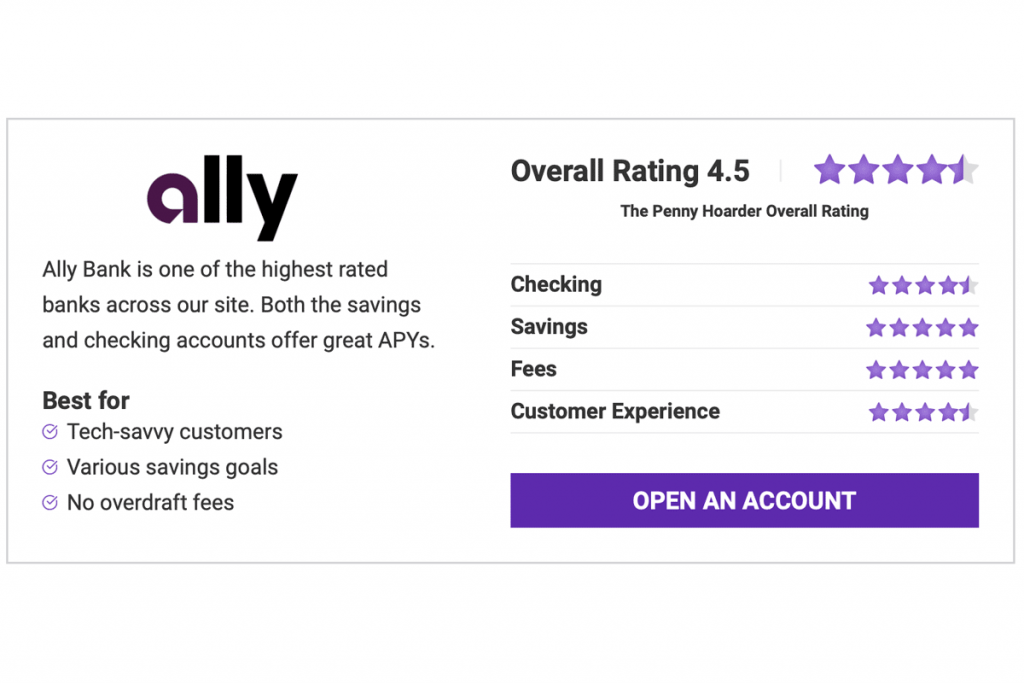Diabetes is a serious chronic illness that affects an estimated 37 million Americans.
It’s also an expensive condition to manage.
From insulin and test strips to blood glucose meters and needles, the out-of-pocket cost for diabetes supplies can add up to hundreds — if not thousands — of dollars each year.
To reduce those high prices, here are some tips on how to get the diabetes supplies you need for less.
How to Save Money on Diabetes Test Strips and Blood Glucose Meters
If you have diabetes, it’s important to test your blood sugar at least two or three times a day.
All those test strips get pricey.
Sometimes purchasing test strips with your insurance can actually cost more, not less.
- Compare prices. If you use insurance, one particular brand of test strips may be cheaper than another. Check with your insurance company to see if they have a preferred brand.
- Cut pharmacy costs. Several diabetes supply companies offer co-pay cards that can lower your out-of-pocket cost at the pharmacy. Mail order subscription services are another way to save.
- Look for coupons. It’s smart to shop around. Using digital coupons from a service like GoodRx can also help lower the cost, especially if you don’t have insurance.
- Try a different brand. Another option is Walmart’s brand ReliOn, which sells 100 test strips for $18. The strips work with ReliOn devices, which range from $9 to $20.
Copay Cards for Test Strips and Meters
Manufacturers of blood glucose meters and test strips offer copay cards that can help lower your cost at the pharmacy.
- LifeScan’s OneTouch strips: With LifeScan’s Automatic Savings Program, you can get 100 OneTouch test strips for $25. You must be enrolled in a prescription plan that doesn’t cover OneTouch strips to qualify for the copay card. You can’t be enrolled in a government health insurance program.
- Ascensia’s Contour meters and strips: Eligible privately insured or cash-paying patients pay the first $25 for up to a 100 count box of Contour Next test strips.
- Accu-Check prescription discount program: Accu-Check offers two major discounts on its website, including a starter pack of supplies for $50. You can also purchase 50 Accu-Check Guide test strips for $20, then $10 for each additional 50 strips.
You’ll need a prescription from your doctor for the supplies. The discount can’t be combined with any form of health insurance.
You can also get a free Accu-Check meter through the company’s free meter program.
Subscription Services for Test Strips and Meters
Subscription services can also help you save money on diabetes test strips and glucose testing meters.
You don’t need a prescription or health insurance to subscribe, and the cost may be much lower than what you’d pay at the pharmacy.
Diathrive
A diabetes supply company called Diathrive lets you set up regular shipments of supplies or opt for a one-time purchase. There’s no commitment and you can cancel at any time.
Here’s how some of the costs break down:
- $10 for a one-time meter purchase. A lancing device and case are included at no cost.
- $8 per 50 test strips. You choose how many you would like delivered and how often.
- Lancets are supplied for free.
- Free shipping is available for orders over $25.
Diathrive doesn’t accept insurance, but you can use your HSA or FSA card to purchase supplies.
MySugr
Another option is MySugr, an app-based coaching program that comes with an automatic blood sugar meter subscription. MySugr offers a $49 subscription bundle.
The first shipment includes 250 test strips, an Accu-Chek Guide Me meter, 102 lancets, a lancing device and access to the MySugr Coach app.
After your first shipment, you’ll receive unlimited testing strips each month for $49. A three-month commitment is required.
How to Save Money on Insulin
Not all diabetics take insulin. But those who do are well acquainted with the high price tag.
The cost of insulin has skyrocketed in recent years. A 2021 study from the RAND Foundation found that drug companies charge much more for insulin in the United States than in nearly three dozen other countries.
In fact, the average price of insulin in the U.S. was more than ten times higher than the average for all the other countries combined.
The four major insulin manufacturers — Eli Lilly, Novo Nordisk, Sanofi-Aventis and MannKind — offer copay cards and patient assistance programs for diabetics with and without health insurance.
- Copay cards are generally available for people with insurance. These discount cards help lower your copay amount at the pharmacy.
- Patient assistance programs are available for people who meet specific income eligibility requirements and are only available for a certain amount of time. You need to apply for these programs and it can take several days or weeks to get approved.
The easiest way to find out which specific programs you qualify for is to use an online matching website like GetInsulin.org or the Medicine Assistance Tool.
Once you enter your prescription, income, basic insurance information and location, these websites will show you detailed information about discounts and savings you may be eligible for.
The American Diabetes Association also provides extensive information about the four insulin manufacturers that offer immediate assistance and long-term resources.
You can also call the manufacturer of your insulin and inquire about savings programs.
Patient Assistance Program Phone Numbers By Manufacturer
| Eli Lilly Diabetes Solution Center | Novo Nordisk NovoCare | Sanofi Patient Savings Programs |
|---|---|---|
| 833-808-1234 | 844-668-6463 | 855-984-6302 |
How to Save Money on Insulin Pens
Many diabetics prefer the convenience of insulin pens, which combine the medication and syringe into one unit.
Certain insulin pens are disposable, while other pens can be replaced with a new cartridge of insulin as needed.
Unfortunately, new dispensers make insulin more expensive.
Retail prices of rapid-acting insulins can cost almost 40% more if you opt for pens instead of vials, according to GoodRx.
Your insurance may cover the cost of a pack of pens, but you’ll likely owe a copay out of pocket.
If you like the convenience of insulin pens, consider opting for the reuseable kind. According to the American Diabetes Association, reusable pens may be more expensive at first, but replacement cartridges for reusable pens are cheaper than those for disposable. This makes reusable pens about the same price over the long term.
Other Ways to Save on Insulin
Manufacturer assistance and rebate programs aren’t the only way to save money on insulin.
Check for Authorized Generics
Authorized generic versions of insulin hit the market in 2019, offering consumers a low-cost, chemically identical alternative to name-brand insulin.
Generics cost about half the price, and pharmacies in most states can fill your prescription with an authorized generic even if your doctor prescribed the branded version.
Eli Lilly was the first insulin manufacturer to release an authorized generic — insulin lispro — the counterpart to Humalog. Since then, the FDA has approved at least four other generic versions of insulins from various manufacturers.
If your pharmacy doesn’t carry the low-cost alternative, ask your pharmacist to order it for you.
Walmart’s ReliOn Insulin
Walmart and Sam’s Club pharmacies carry Novo Nordisk’s insulin for $25 per vial. No prescription is required.
This insulin isn’t optimal for everyone. Novo Nordisk is an older form of insulin called synthetic human insulin, and using it requires precise timing and a strict diet.
In June 2021, Walmart released a fast-acting analog insulin called ReliOn NovoLog. But it’s more expensive, at $73 a vial, or $86 for a pack of five pens.
Community Health Clinics
Community clinics can provide low-cost or free insulin to people who meet income requirements. You can find a community clinic using this search tool from the U.S. Department of Health and Human Services.
Your Doctor and Insurance Company
If you have health insurance, call your insurer and ask what their preferred brand of insulin is. If your doctor thinks the other insulin can work for you, making the switch could save you money.
It’s also smart to talk to your doctor. He or she might suggest other ways to save money, such as providing free samples of glucose test strips or connecting you to local programs that provide financial support.
State Insulin Copay Caps
Some states have passed legislation to limit the out-of-pocket cost an insurer can charge.
These copay caps generally limit the cost of insulin to between $25 and $100 for a 30-day supply.
Colorado’s insulin copay cap was the first to go into effect in January 2020.
Today, nearly half of all other states have insulin copay cap programs, including Illinois, Utah and West Virginia.
You can learn more about each state’s mandates that impact diabetes care here.
How to Get Free Diabetes Supplies
Saving money on diabetes supplies is great. But free is even better.
Free Insulin
If you’re trying to find free insulin, the three major insulin manufacturers offer patient assistance programs. To qualify, you generally need to make less than 400% of the federal poverty level ($54,360 for an individual in 2023 and $111,000 for a family of four).
You’ll also need to fill out an application for the program. The free insulin you receive may be limited. The NovoCare Patience Assistance Program, for example, only offers a 90-day supply.
- NovoCare Patience Assistance Program: You must be at 400% or below the federal poverty line and have no form of insurance to qualify for this program, which offers free insulin for 90 days. The company will contact you before your supply runs out to determine continued eligibility.
- Lilly Cares: This program provides up to 12 months of prescribed Eli Lilly insulin products to those who earn less than 500% of the federal poverty level and meet other eligibility requirements.
- Sanofi Patient Connection: This program provides Sanofi insulin at no cost for 12 months to uninsured patients with incomes at or below 400% of the federal poverty level. If longer assistance is needed, you can reapply on a yearly basis.
Other Free Diabetes Supplies
Many manufacturers of blood glucose meters offer free devices to entice you to start buying their test strips.
Nonprofits at the local level may also be able to provide vouchers or cash assistance for diabetic supplies, especially to those with low incomes and no insurance. You can call United Way’s 411 information line to find out what’s available in your area.
Here are three other ways to get free supplies.
Free Freestyle Meter
You can get a Freestyle meter for free by signing up for the FreeStyle Promise Program. Once you register, you can also receive discounts on test strips.
The discounted test strip program isn’t available to people enrolled in federal or state health insurance programs. You can use the FreeStyle Promise card to receive savings on test strips after paying the first $15. Actual discounts and savings vary, according to fine print on the company’s website.
Free Contour Glucose Meter
You can apply to get a free Contour Next EZ meter. You must be privately insured and have a prescription from your doctor to qualify.
The meter is technically free but you must purchase a minimum 50-count of Contour Next test strips at the pharmacy to redeem the offer.
Diabetes Will’s Way
Diabetes Will’s Way is a nonprofit program that provides two types of grants for families with children diagnosed with type 1 diabetes.
The first grant is for durable medical equipment, like insulin pumps and continuous glucose monitors. The second is an emergency cash grant that helps families in crisis afford daily diabetic supplies like insulin, test strips and syringes.
There’s no application on the program’s website, so you will need to contact them directly for more details.
Rachel Christian is a Certified Educator in Personal Finance and a senior writer for The Penny Hoarder.
Credit: Source link














